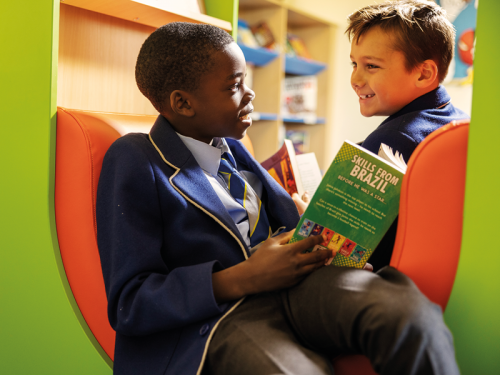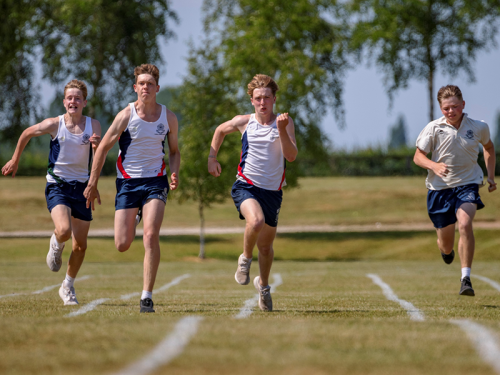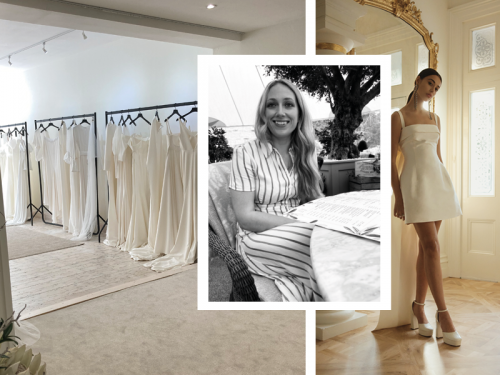Man of the Moment: Dr Bryce Stewart
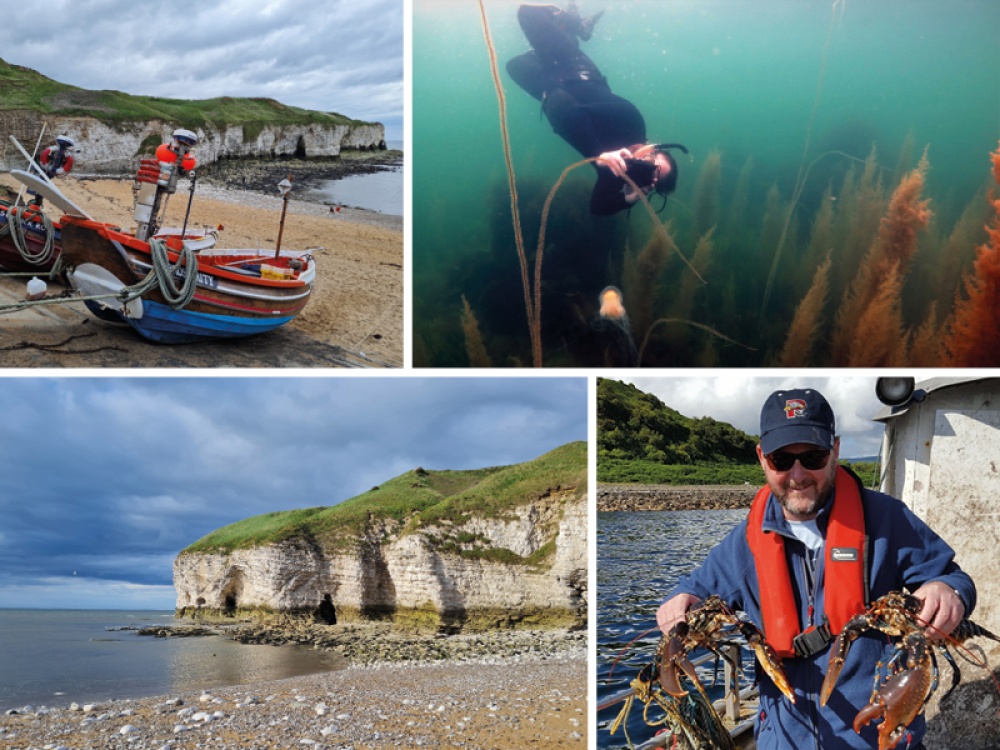
University of York researcher Dr Bryce Stewart is taking an optimistic approach to protecting the environment, and he has now featured in a new marine conservation film inspired by hit BBC series Wild Isles
Bryce has had a fascination with the ocean ever since he was a child. ‘Growing up in Australia we used to go on a lot of beach holidays and apparently when I was about five years old we were coming home from one trip and I was crying saying to my dad “I don’t want to go home, I want to live by the sea, I love the beach and when I grow up I want to be a professional holiday man,”. My dad said “well that’s not really a job but you could become a marine biologist” and obviously, at five years old, I didn’t really know what that was, but those were the days when Jacques Cousteau was on the television so I watched him and was hooked,’ he tells us.
‘As luck would have it, when I was eight, the family moved to Papua New Guinea, a tropical country, surrounded by coral reefs. We stayed there until I was 17 so really my childhood was just spent snorkelling, scuba diving and fishing, so that really sealed the deal. When we did move back to Australia I knew I was going to need some appropriate qualifications so I went to university, eventually getting my Phd in marine biology.’
Bryce has been in York for the past 15 years. Although the weather isn’t quite the same as the South Pacific, Bryce is just as obsessed with the coast in our county. ‘York is a fantastic place to live because you’ve got a beautiful historic city, but then you’ve also got the coast only an hour away. There’s Flamborough Head, Whitby and the Holderness coast all very close at hand.
‘You also have spectacular marine wildlife offshore. I went whale watching a few years ago off Whitby and we saw 12 Minke whales in just a few hours. And you’ve got places like Flamborough Head which has these incredible bird nesting sites for gannets and puffins. For somebody who likes the natural world it’s a fantastic place to live.’
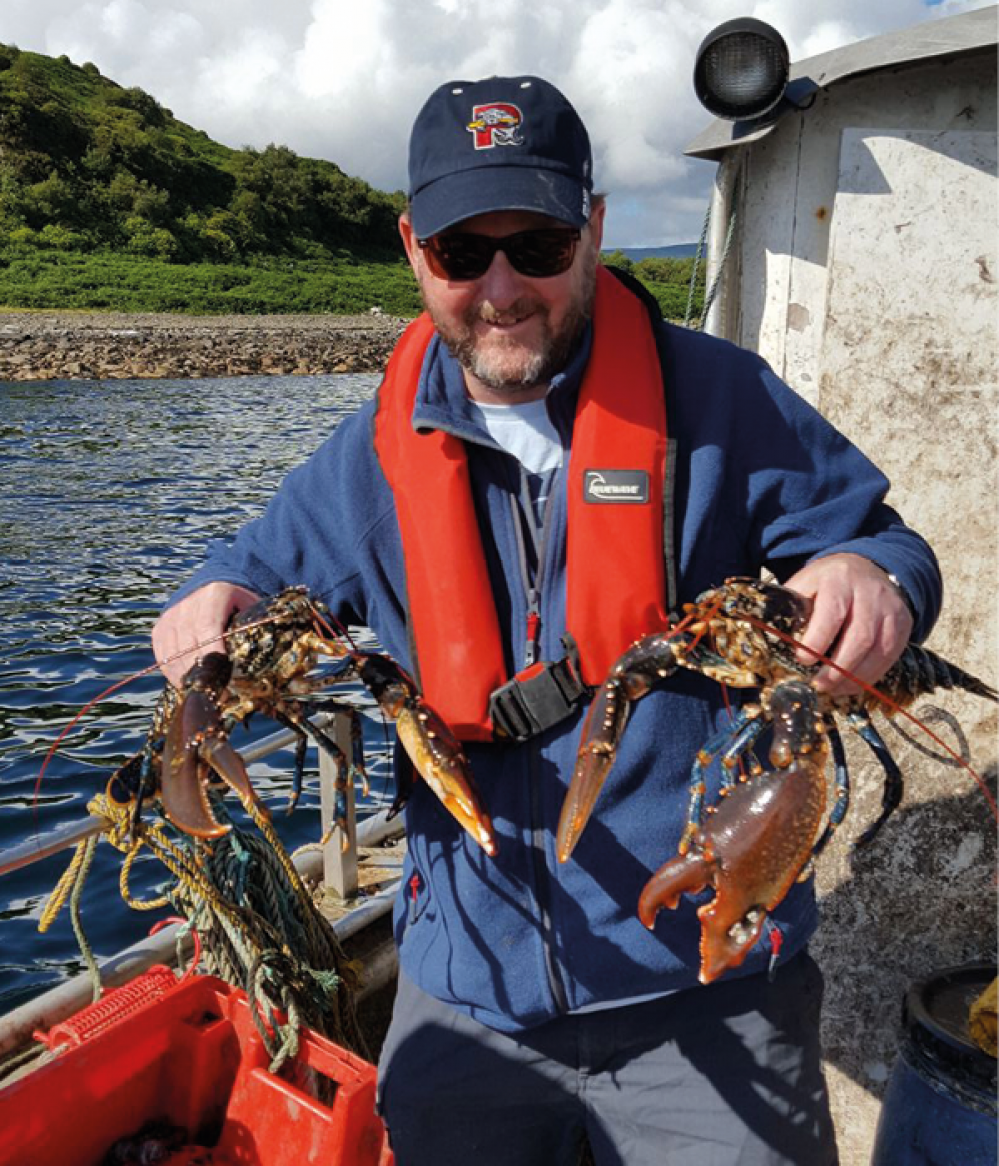
Read More: How Make It Wild Are Creating New Wild Spaces Across Yorkshire
Bryce is senior lecturer at the University of York, and a special benefit of his role is the field trips – something he admits is a favourite part of his job. ‘I’m particularly interested in human impact on marine environments, but also what we can do about them,’ he explains. When we speak, he’s in in Scotland on the Isle of Arran on two weeks of field work. ‘We are monitoring a marine protected area here; the original one was established in 2008 and we’ve been coming up here pretty much every year since then.
‘We’re surveying it in a variety of ways, sometimes working onboard fishing boats, sometimes putting underwater cameras down, sometimes doing scuba diving surveys. With all of those different methods we get a good picture and can see if the protection’s working and if it’s helping biodiversity increase – which it is. It’s working very well. So this really, I have to be honest, is the most fun part of my job, being back out there in the environment which is what drew me to marine biology in the first place.’
The University’s research into a ‘No Take’ zone off the coast of the Isle of Arran in Scotland was actually profiled in the final episode of the recent BBC series Wild Isles and now Bryce is featured in a Wild Isles spin-off campaign film, Catch 22. ‘I’m a firm believer that part of the role for scientists is not just to do the research but also to share it as widely as possible with everyone, from the public to businesses to policy makers and people in the government who can actually make changes,’ he says.
‘I was lucky enough to have a friend at the RSPB who knew that I had done quite a lot of media work before, so she recommended me for the film. It was very exciting. My contribution was all filmed in one afternoon just in a room. I was sent over 30 questions beforehand to answer, so I made sure I was very well prepared. It’s all quite intense. Nothing else much happened for a couple of months then we were given a preview before it went public and it was quite incredible to see how they’d pieced it all together. It was the same sequences that were in the main Wild Isles, David Attenborough series, and all of the imagery was just amazing.’
The film was made by the Wild Isles production company Silverback Films and was the result of a special partnership between the charities RSPB, WWF and the National Trust. In it, Bryce joins entrepreneur Deborah Meaden, conservationist Professor Dan Laffoley and Pete Kibbel, co-founder of Fishtek Marine, among others, to highlight the loss of biodiversity in our seas, but also how things can be turned around.
‘I talked about a few different things,’ Bryce explains. ‘We have to be honest and face facts that we are living in both a biodiversity and climate change crisis at the moment, and the natural world is under a huge amount of pressure from humans. But there are ways to try to live more sustainably, to reduce our impact on the environment, and so a lot of both my research and teaching is about that.'
Read More: Bridlington Photographer Shares Her Beautiful Yorkshire Snaps
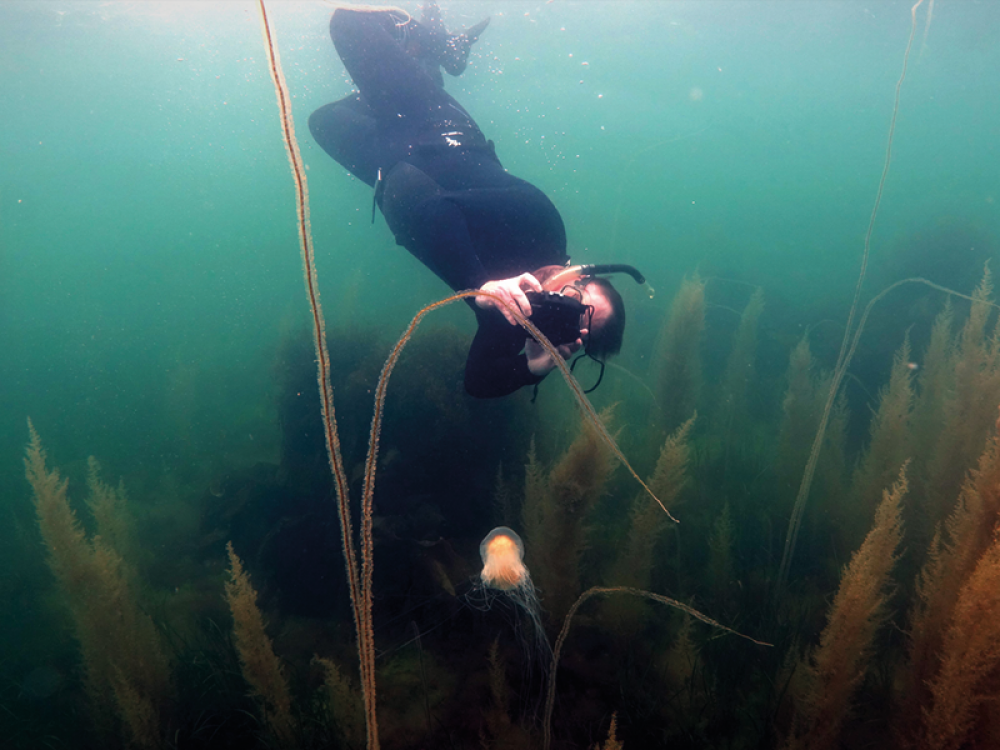
There were various films made as part of the bigger Save Our Wild Isles campaign but this particular film was aimed at the marine sector, in particular calling on businesses to put nature at the heart of every boardroom decision.
‘Businesses were one of the target audiences for the film because we realise that to really improve the sustainability of practices, you need to work with them. If you’re a business that’s involved directly in fishing or coastal development for example, then you can obviously do things to make your practices more sustainable,’ Bryce explains. ‘Some things I promoted in the film were managing our fisheries sustainably, not taking out more fish than are being naturally replaced, and selectively using things like marine protected areas to allow areas of habitat to recover.
Read More: Meet The Tawny Owl Chicks Born In Kielder Forest
‘But also most businesses run events, have in-house restaurants or canteens, and so one of the things that we recommended is they make sure that at those events, if they’re serving seafood, it should come from sustainable sources. That really encourages best practice out on the ocean, with the idea being that if there’s more demand for these sustainable products that means more people start to fish in those ways. That’s something that’s been developing over the last 20 years and becoming more and more successful.’
In all his work Bryce focuses on the positives rather than the negatives, highlighting what he calls ‘ocean optimism’. ‘I think it’s partly maybe my personality but I think there is a lot of doom and gloom at the moment when it comes to environmental issues,’ he says. ‘There are so many negative views out there across the media, and I think it’s particularly concerning for younger people. My belief is if we act now, we can do things to tackle climate change and biodiversity loss before it gets so bad.
‘Really my message is, don’t give up! Look at all the solutions that are out there, look at how we can change our practices, and when we do that we see fish stocks recovering and sea grass being planted and coming back. We have the methods, we know what to do, and we just need to convince enough people to not give up but instead actually do everything they can. You don’t have to be a marine biologist, you can make small changes in your every day life through rethinking your travel, eating a bit less meat, not wasting so much food, or buying less. There’s lots of things we can do which – I know it sounds cliché – will lead to a better future. So that’s my message. If everyone does just a little bit that will make a huge difference overall.’




